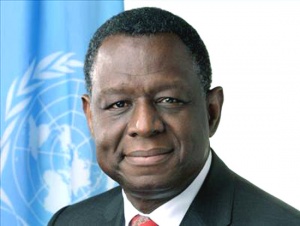
Demands for water, trees, food and fossil fuels will only increase as world population grows. Human activity has altered every aspect of our planet, including its climate. Shortages of clean water and arable land are already a problem in many parts of the world, and the resilience of ecosystems—from fisheries to forests—is threatened.
Rising expectations everywhere put more pressure on the earth, and will require everyone to adopt more efficient, “greener” ways so that all people may have decent lives. Our collective future depends on rapidly lowering greenhouse-gas emissions while reducing excessive consumption, particularly in the wealthier countries. Greater social equity and slower population growth can contribute to sustainability, but only if individuals and governments alike make the right choices.
We must all begin with a choice about what kind of planet we want to pass on to our children and grandchildren. Individuals, especially in the industrialized countries, can make small choices about their lifestyles that can have a big impact on the local and global environment. Each of us can choose actions that will protect the planet and still help increase the quality of life for all of humanity.
But not everyone has the power to make choices. Lack of opportunities precludes many people from making free and informed decisions about many aspects of their lives. One of these relates to family size. More than 200 million women and girls want to use contraception but lack access to it. When contraceptives are unavailable—for cultural, social, economic or any other reason—individuals have neither the power nor the means to decide how many children to have or when to have them.
We should adopt and invest in national and international policies that can improve people’s options by making universal access to sexual and reproductive health services—especially voluntary family planning—a reality. This point was underscored by the United Nations Secretary-General’s High-level Panel on Global Sustainability We should also invest in educating and empowering women and youth as agreed at the Cairo International Conference on Population and
Development and in the Millennium Summit.
Such measures can help reduce infant, child and maternal deaths, slow population growth — and create the conditions for a truly sustainable environment.
Actions by individuals, governments and civil society can empower and increase opportunities for each woman and young person to improve their lives and be part of the environmental solution instead of bearing the brunt of the problem. Empowering women and young people will help ensure that when the dawn of a world of 9 billion consumers breaks, our planet is thriving, healthy and sustainable Let’s create and invest in the opportunities that will allow people everywhere to make the right choices that will sustain our planet, promote equity and social justice and improve people’s lives now and into the future.

